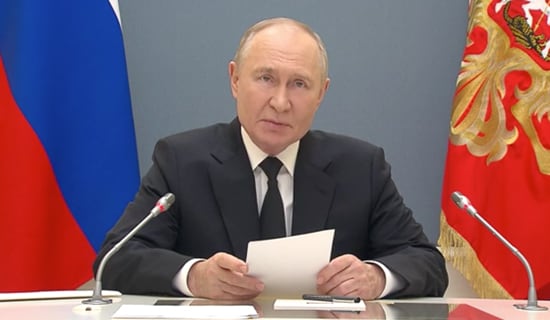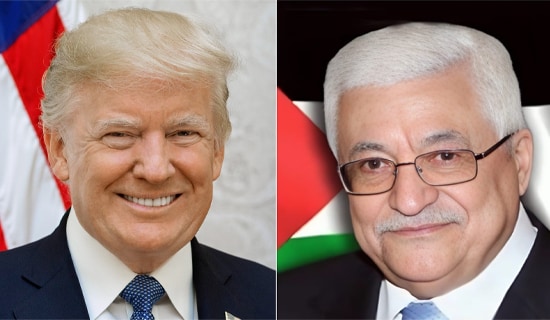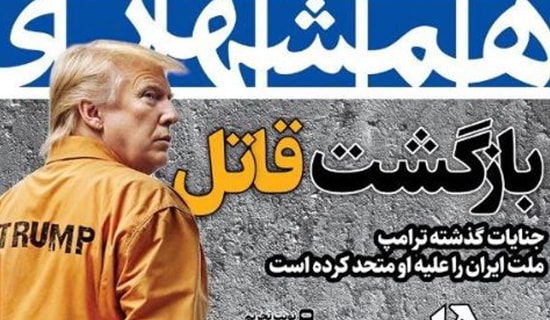A March 17, 2009 article in The New York Times reporting that the U.S. administration is planning missile attacks in the Pakistani province of Baluchistan, especially in the provincial capital Quetta and its surrounding areas, incited new concern in Pakistan.
In recent years, Quetta and the surrounding areas along the Afghan border have served as hideouts for Taliban and Al-Qaeda militants. U.S. missile attacks there would mark the expansion of its missile attacks beyond the Federally Administered Tribal Areas.
The Pakistani media reacted swiftly to the possibility of such attacks in Quetta and the surrounding areas, calling it a new threat to Pakistani sovereignty and urging the Pakistani government to confront the U.S. and abandon its war against terrorism.
The Pakistani concern was recently reignited due to n anti-Taliban operation launched by the U.S. and Afghan troops in the southern Afghan province of Helmand, situated along the Pakistani province of Baluchistan. There is emerging concern that the Taliban militants from Afghanistan's Helmand province could enter Pakistan's Baluchistan province, forcing the U.S. to launch drone attacks in Baluchistan as well. Pakistan Army spokesman Maj.-Gen. Athar Abbas told the media that Pakistani troops have been deployed along the Pakistan-Afghan border to prevent militants from entering Baluchistan. [1]
On July 5, 2009, Amir Sultan, a former official of Pakistan's Inter-Services Intelligence (ISI), warned: "The U.S. may carry out drone attacks in Baluchistan after its failure in Helmand, which would yield dangerous results." [2] Pakistani Prime Minister Yousuf Raza Gilani has also voiced his concern that the U.S. military operation against the Taliban in the Helmand province may destabilize Baluchistan province. [3]
Following are some excerpts from editorials in Urdu-, English- and Pashtu-language newspapers published in Pakistan.
Roznama Jasarat: "The Disclosure of the News of [the Likely] U.S. Missile Attacks on Quetta is Indeed a New Threat"
Roznama Jasarat, a Karachi-based Urdu-language newspaper, wrote in an editorial titled "Threat of Drone Attacks on Baluchistan": [4] "After the American occupation of Afghanistan, the Afghan-Baluchi border region had so far been quiet and peaceful. But it seems now that the U.S. has decided to throw this region too into the fire of war. According to the report by U.S. Gen. [David Petraeus], Mullah Omar and the Taliban are launching their attacks against the U.S. troops in Afghanistan from their bases in Quetta [the Baluchi capital] and its surrounding areas....
"The series of attacks from the pilotless spy planes, under the coordination of the CIA, have so far been limited to the [Federally Administered] Tribal Areas of Pakistan. But now the U.S. military and government, in order to pressure Pakistan, have leaked a report to a newspaper that the range of drone attacks will be extended beyond the Tribal Areas.
"Now, for the first time, Quetta and its surrounding areas have been identified; it has been said that Mullah Omar and his fighters have safe havens in these areas. The disclosure of the [likely] drone attacks around Quetta and its surrounding areas has come about at a time when Pakistan is faced with a lack of stability....
"The political leadership in the parliament and the military leadership [earlier] announced their joint stand, and told the U.S. that Pakistan's security has been threatened because it is an ally of the U.S. in its so-called war against terrorism, and that the U.S. drone attacks are direct assaults on Pakistan's sovereignty. But despite the parliamentary strength and the support of the people, the democratic government [in Islamabad] has failed in the duty of defending the country's security....
"Now the time has come to leave the U.S. war and to ensure the security and defense of Pakistan."
The News: "Defeating the Militants Must Go Beyond the Mere Aim of Bombing Them Out of Existence"
In an editorial titled "Bombing Baluchistan," the Pakistani daily The News wrote: [5] "According to reports in the U.S. media, Washington may be planning to embark on a new strategy involving drone attacks in Baluchistan. It is argued that drone bombings in the northern areas have led to key Al-Qaeda militants fleeing southwards to Quetta, where they are more vulnerable and can be targeted through aerial attacks. Senior U.S. administration figures have also been quoted as saying that the province has been used by militants as a safe haven for years. Baluchistan-based security officials have denied that Al Qaeda leaders are present in the area.
"The problem is that the issue of defeating the militants must go beyond the mere aim of bombing them out of existence. We must concede that the drone attacks seen in the tribal areas all through the last year have resulted in the death of at least some militants - possibly some important figures in the movement. But what they have also done is create immense anger and resentment among ordinary people, who have also been among the victims of the bombs and missiles that flatten homes and kill indiscriminately....
"The drone attacks have added to the complications we find in battling militancy. We must avoid a situation where extremism grows due to similar feelings of rage and hatred in Baluchistan. So far, in the province, the extremist groups that promote militancy have had only limited success. Many groups based in Baluchistan, including those who promote nationalist causes, believe in progressive values. There are indications, though, that they may be rapidly learning the violent ways of militants.
"The Pakistani government must ensure that in this situation, the U.S. is made aware of the risks and does not embark on a strategy that adds to the problems that Pakistan already faces."
Daily Times: "The Drones Now Belong to the Biggest Area of Disagreement Between The U.S. and Pakistan"
In an editorial titled "And Now, Drones for Baluchistan?" the Lahore-based Daily Times wrote: [6] "No one in Pakistan will support the reported plans in Washington to extend American drone attacks from the [Federally Administered] Tribal Areas to the already disturbed province of Baluchistan.
"The Foreign Office in Islamabad has dismissed the news about the broadening of attacks... as speculation, and the Frontier Corps Commander in Baluchistan [Major General Saleem Nawaz] has rejected the allegation made in the report that the Taliban supporters were hiding in Quetta. Incidentally, the New York Times story was contradicted the next day by the Washington Post, which said that the U.S. military was reluctant to extend the drones' area of operations. Even so, it does seem like some people in Washington are giving the option a thought.
"The government has already taken a tough stand on the bombing of the Tribal Areas by the CIA drones. It is politically incorrect to support a signal to the people of Pakistan that its sovereignty is being violated with the consent of anyone in Islamabad and Rawalpindi. Dealing with drones in Baluchistan will present Pakistan with another challenge, perhaps more dangerous than the one faced by the collateral damage already being caused in the Tribal Areas.
"One can say that the drones now belong to the biggest area of disagreement between the U.S. and Pakistan. The political fallout from this disagreement is not benefiting the government in Islamabad, more so when some quarters question the sincerity of the government in seeking to stop the drone attacks. Did Pakistan ever allow these attacks? General Musharraf (Ret.) says he didn't, but if the drones land or take off from the landing facilities provided to the U.S. by Pakistan, then the claim is hardly credible.
"The 'drone policy' couldn't be changed in January this year when President [Asif] Zardari put the issue before the visiting U.S. Central Command (CENTCOM) General David Petraeus. The expansion of this policy to Baluchistan will hardly be changed if Pakistan protests afresh. There are problems on the Pakistani side that we must take seriously. In the Tribal Areas and in Baluchistan, Pakistan hardly has any writ of the state. It has gotten so bad that the government is not able to secure innocent people against the violence of external and internal actors whose existence we [would rather] deny."
"Quetta's Proximity to the Troubled Region of Kandahar in Afghanistan Compels the Taliban's Cross-Border Squads to Embed Themselves in Drone-Free Baluchistan"
"Just because the people of Pakistan don't mind the presence of Al Qaeda and the Afghan Taliban it doesn't mean that the world will stop feeling threatened by them. For instance, it is quite beside the point that the FC Commander in Baluchistan denies the presence of the Afghan Taliban in Quetta. The corpus of evidence to the contrary, both inside Quetta and just outside it, is too big at the international level to be ignored. Quetta's proximity to the troubled region of Kandahar in Afghanistan compels the Taliban's cross-border squads to embed themselves in drone-free Baluchistan.
"While some quarters in Washington disapprove of the drone attacks if they alienate America's ally Pakistan, others are impressed by the targets the drones have succeeded in striking. That the drones have unsettled Al-Qaeda in the Tribal Areas and forced it to go on the defensive rather than stealing the initiative of action against Pakistani authorities also impresses the world if it doesn't impress Pakistan. Some surveys, like the one by The Aryana Institute for Regional Research and Advocacy, a think tank in Peshawar, show that the 'victims' of the Taliban actually welcome the drone attacks.
"But Baluchistan is going to present Pakistan with bigger problems than the Tribal Areas if the drones start operating there. The Baluchi insurgents there have taken to kidnapping officials of the international agencies as an instrument of pressure in their dialogue with the Pakistani government. The one important person they now have in custody is UNHCR's Johan Solecki, an American national. While the U.N. is trying its best to get him released, it can't be ruled out that the CIA might choose to strike the Baluchi insurgents in addition to their declared target, the Taliban."
The Post: "[The Attacks] Will Also Deepen Anti-U.S. Sentiments Already Prevailing in the Country; The Terrorists are Exploiting These Sentiments"
In an editorial titled "Danger of Adventurism," the English-language daily The Post noted: [7] "Some advisers are also suggesting to President Obama to continue the Bush policy of continuing drone attacks over a wider range of targets in the Tribal Areas of Pakistan. These advisers are also recommending exercising the option of conducting cross-border ground actions. However, President Obama has not made any decision. It is possible that the decisions about the covert actions will never be publicly announced....
"With the installation of the Obama administration, it was hoped that the drone attacks would stop. But now it seems that the new administration has decided to continue the same old policy of hitting the Tribal Areas of Pakistan. If the latest New York Times report foreshadows the new U.S. policy, it will mean a dangerous escalation of a very unpopular and controversial policy. It will not only create new strains in Pakistani-U.S. relations but it will spoil the Pakistani government's efforts to control militancy by signing peace agreements with the Taliban..."
"It is Hoped That the U.S.... Will Think Twice Before Indulging in Further Adventurism, and Will Refrain from Compounding An Already Difficult Situation"
"All the previous attacks were widely condemned by all political parties in Pakistan, as they pose a threat to Pakistan's sovereignty. Pakistan raised the issue with the United States, but the U.S. has not responded positively. If there is the slightest element of truth in the New York Times report, then it is right to say that the U.S. will be repeating another serious blunder and further inflaming the Tribal Areas of Pakistan. This will also deepen anti-U.S. sentiments already prevailing in the country.
"The terrorists are exploiting these sentiments in their favor, and misguiding the people of the Tribal Areas. President Asif Ali Zardari and Prime Minister Yousaf Raza Gilani have on many occasions pointed out the fact that drone attacks are making the U.S. unpopular in Pakistan.
"It is hoped that the U.S. policy makers will think twice before indulging in further adventurism, and will refrain from compounding an already difficult situation."
Wrazpanra Wahdat: "The Only Way Now to Stop Growing U.S. Interference in Pakistan is For the Rulers of Pakistan's Political and Religious Parties and NGOs to Not Keep Mum Against the U.S. Aggression"
In an editorial titled "U.S. Decision to Extend Drone Attacks to Baluchistan," Wrazpanra Wahdat, a Pashtu-language Pakistani daily, observed: [8] "The [New York Times] newspaper said that some U.S. intelligence officials have admitted that activities of Mullah Omar, leader of the Afghan Taliban, and his associates have increased in Quetta and the surrounding areas, to the extent of posing a threat which will create a situation for the U.S. in the future....
"Observers know, from the construction of the [Chinese-funded] Gwadar Port [in Baluchistan], and from America's fight against China's growing influence, that America's political interests are linked to Baluchistan. And they are finding different pretexts in order to ensure their presence in Baluchistan.
"The only way now to stop growing U.S. interference in Pakistan is for the rulers of Pakistan's political and religious parties and NGOs to not keep mum against the U.S. aggression, and to raise strong voices against the U.S. spy plane attacks on all forums.
"The rulers of nuclear Pakistan should make it clear to the U.S. that Pakistani forces are ready to face any challenge for the survival, security and independence of the country - and no one will be allowed to take a step against Pakistan's sovereignty."
Wrazpanra Qudrat: "Baluchi Political Leader Talal Bugti Has Said That Pakistan Should Retaliate"
The Pashtu-language newspaper Wrazpanra Qudrat, published from the Baluchi capital of Quetta, observed in an editorial titled "Efforts on to launch drone attacks on Baluchistan": [9] "The regime of former Pakistani military dictator Pervez Musharraf joined the U.S.-led war on terror after 9/11. The operation being conducted by the U.S. in Pakistan seems to have been a forced operation - but actually Pervez Musharraf had allowed these operations under an agreement. The U.S. has been conducting raids through their spy aircraft in the Tribal Areas, but due to the agreement our rulers can't say anything except showing so-called protest....
"It is to be recalled that a C.I.A. agent visited Baluchistan in the guise of a journalist a year back, and took photos of [Islamic] seminaries set up by Afghan Taliban in Quetta, Pashin, Chaman, Zoub, Kachlagh, Pakhtunabad and other areas.... The Obama government is mulling spy planes attacks on the basis of these pictures.
"Former Prime Minister Mir Zafarullah Khan Jamali condemned the planned drone attacks on Baluchistan, while Baluchi political leader Talal Bugti has said that Pakistan should retaliate against these attacks - and that if they cannot, then the Baluchis should be allowed to retaliate..."
Endnotes:
[1] Roznama Jang, Pakistan, July 3, 2009.
[2] Roznama Mashriq, Pakistan, July 6, 2009.
[3] Roznama Jang, Pakistan, July 4, 2009.
[4] Roznama Jasarat, Pakistan, March 20, 2009.
[5] The News, Pakistan, March 20, 2009. The text has been lightly edited for clarity.
[6] Daily Times, Pakistan, March 20, 2009. The text has been lightly edited for clarity.
[7] The Post, Pakistan, March 20, 2009. The text has been lightly edited for clarity.
[8] Wrazpanra Wahdat, Pakistan, March 19, 2009.
[9] Wrazpanra Qudrat, Pakistan, March 20, 2009.




